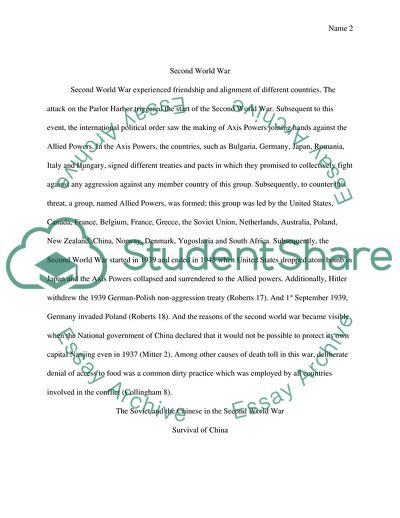Cite this document
(The Soviet and the Chinese in the Second World War Report Example | Topics and Well Written Essays - 2500 words, n.d.)
The Soviet and the Chinese in the Second World War Report Example | Topics and Well Written Essays - 2500 words. https://studentshare.org/history/1860381-world-war-2
The Soviet and the Chinese in the Second World War Report Example | Topics and Well Written Essays - 2500 words. https://studentshare.org/history/1860381-world-war-2
(The Soviet and the Chinese in the Second World War Report Example | Topics and Well Written Essays - 2500 Words)
The Soviet and the Chinese in the Second World War Report Example | Topics and Well Written Essays - 2500 Words. https://studentshare.org/history/1860381-world-war-2.
The Soviet and the Chinese in the Second World War Report Example | Topics and Well Written Essays - 2500 Words. https://studentshare.org/history/1860381-world-war-2.
“The Soviet and the Chinese in the Second World War Report Example | Topics and Well Written Essays - 2500 Words”. https://studentshare.org/history/1860381-world-war-2.


